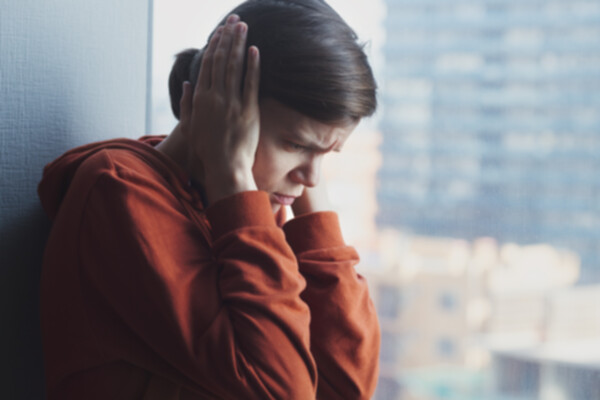What did the diagnosis of residual schizophrenia mean? Why was there a distinction between different types of schizophrenia in the DSM-IV? Discover its symptoms and how to deal with it.
The residual schizophrenia It is a subtype of this disorder that is mainly characterized by a decrease in positive symptoms (that is, psychotic symptoms that involve a distortion of reality), while negative symptoms still persist. People who suffer from schizophrenia tend to have the way they think, feel, behave or perceive reality affected. In fact, many people usually know this disorder mainly because of the positive symptoms such as psychosis, hallucinations and delusions.
However, the residual schizophrenia , one of the subtypes of schizophrenia, stands out for the reduction or even absence of positive symptoms. Currently, residual schizophrenia is no longer a clinical diagnosis and is included within the disorder. Even so, differentiating it can help understand the ways in which schizophrenia presents.
What is residual schizophrenia?
The residual schizophrenia It was one of the five subtypes into which this disorder was differentiated. Thus, people who suffered from this type of schizophrenia tended not to experience the positive symptoms of this disorder, such as delusions, hallucinations or disorganized behavior.
However, although they may experience one or two of these symptoms in a reduced way, such as feeling strange perceptions or having distorted thinking, people mainly suffer from negative symptoms, which include social isolation or difficulty paying attention.
Residual symptoms of schizophrenia
While the symptoms of the other subtypes of schizophrenia tend to be more extreme, including hallucinations, speech disorders, catatonic behavior or delusions, residual schizophrenia It usually presents milder symptoms.
A person who suffers from residual schizophrenia You have usually experienced at least one episode in your past with symptoms that changed your way of thinking or your perception. It is for this reason that people who are diagnosed with residual schizophrenia only end up suffering from negative symptoms such as the following:
- strange beliefs
- Unusual perceptual experiences
- Distorted thinking
- Flat affect or diminished emotional expression
- Lack of motivation to participate in purposeful activities
- Decreased pleasure in activities that you previously enjoyed (anhedonia)
- diminished speech
- Lack of interest in social interaction
Causes of residual schizophrenia
Currently there are different factors that can lead to the appearance of schizophrenia:
- Genetics: Although schizophrenia is not caused solely by genetics, the chance of developing it is greater if a close family member has been diagnosed with this disorder.
- Environmental: For people who have genetic risk factors, interactions in a certain type of environment can increase their risk of developing schizophrenia. For example, excess stress or poor nutrition can increase the risk.

- Brain chemistry: Research has shown that people with schizophrenia may differ from those who do not have this disorder in different aspects, such as the interactions between some neurotransmitters, such as dopamine.
- Drugs abuse: Taking mind-altering drugs, such as marijuana, can increase the risk of schizophrenia.
Treatment of residual schizophrenia
The schizophrenia It tends to appear during early adulthood and has no cure. Therefore, treatment is necessary so that people can control the symptoms of this disorder. In the vast majority of cases, treatments may include antipsychotics and therapy.
How to deal with residual schizophrenia?
In addition to going to treatment with a professional psychologist, there are some tips that can help you deal with this situation:
- Mindfulness Meditation: Research shows that mindfulness can lead people with schizophrenia to experience more positive emotions, a reduction in negative symptoms, and better psychosocial functioning.
- Seek social support: It is important for people who suffer from schizophrenia to find a support group with people with the same disorder to share experiences. Feeling emotional support from people who are experiencing similar things can be very therapeutic.
- Work to achieve your goals : Those who suffer from schizophrenia must pursue vital goals and interests that help them not succumb to the symptoms of this disorder.
- Practice a hobby: Spending time doing activities that you enjoy will help you combat the symptoms of this disorder.
- Watch your health: It may be helpful to eat a healthy diet, exercise daily, and try to get enough sleep.
According to the DSM-IV, a person with residual schizophrenia would only present negative symptoms or at least two very mild forms of positive symptoms, such as strange beliefs or unusual perceptual experiences.
Some of the treatments for schizophrenia include various therapies and interventions, such as CBT, social skills training, and cognitive remediation. If followed and with good family support, people can end up living a full and happy life despite fighting a schizophrenic disorder.









